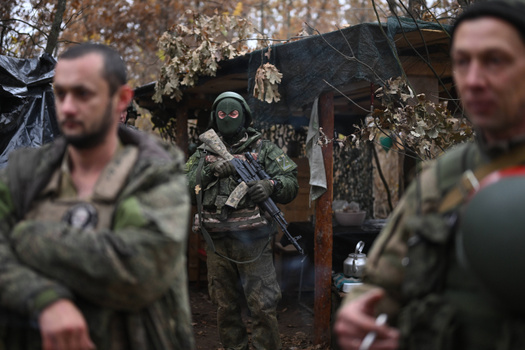
‘A change in moral priorities’ New Russian bill would allow criminal suspects, defendants, and convicts to sign army contracts to avoid prison time
Мы говорим как есть не только про политику. Скачайте приложение.
The Russian authorities have been using prisoners to beef up their military forces in Ukraine for well over a year and a half now. This out-of-the-box strategy has had all of the unintended consequences you might expect (i.e. recidivism), as well as some that seemed unthinkable until they happened (see: Yevgeny Prigozhin’s insurrection). Nonetheless, lawmakers are now working on an initiative that would allow criminal suspects, defendants, and convicts to have their cases or sentences suspended in exchange for joining the army, potentially avoiding any prison time at all. Here’s what we know.
Three lawmakers from Russia’s ruling United Russia party have co-authored a bill that would allow soldiers serving under Defense Ministry contracts to be exempted from punishment for certain crimes.
According to a source familiar with the bill who spoke to Verstka, the legislation is intended to “increase the appeal of army service” by showing that “for military achievements, the state is willing to forgive some criminals.”
“It’s time for a change in moral priorities, and small-time criminals can seek mercy from the state in exchange for acts of courage,” said the source. He added that the appearance of this bill so close to Russia’s presidential election is no coincidence, saying the initiative is meant to “create a positive emotional background” for soldiers.
Human rights lawyer Irina Biryukova told Verstka that the bill pertains to parole and not pardons, which can only be granted by the president.
“They’re two different procedures [that can exempt convicts from their sentences]. In the case of pardons, the president signs a decree on the basis of a decision made by a pardon commission. After the pardon, to put it simply, the person is fully exempt from the rest of their sentence,” Biryukova explained.
Under the parole process referenced in the new legislation, on the other hand, a person’s sentence would be upheld but suspended, Biryukova said. “In other words, if the convict commits a [new] crime [later on], the unserved penalty is added to their new sentence,” she added. She said that because this procedure doesn’t currently exist in the context of military service in Russian law, the bill would have to provide the details.
The bill would supplement legislation passed in the summer of 2023 that laid the groundwork for contract soldiers to be exempted from criminal penalties but didn’t specify the mechanism by which this would happen. “For me, this legal mechanism isn’t quite clear at the moment,” Biryukova told Verstka. “The Defense Ministry isn’t an agency that can just issue instructions to the head of a prison facility.”
According to State Duma deputy Pavel Krasheninnikov, one of the bill’s authors, the new bill will allow people under investigation, people facing charges, and people already convicted to sign contracts with the Defense Ministry, after which their cases will be suspended or their sentences will be replaced with parole.